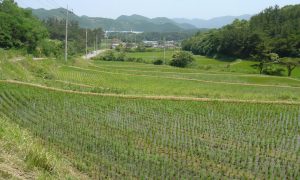Interesting post on Korean attitudes to foreign investment.
What does it take to become financial hub?
A heated debate has been set off by a recent Financial Times article criticizing the rise of neo-nationalism among Koreans, but the author failed to point out that the 5 percent rule for which Korea alone is being criticized for enforcing is a global standard.
Actually, whether or not the article is correct on the 5 percent rule is of secondary concern. What is important is, as reported, the extremely worsening “anti-Korean feelings” of foreign businesspeople in Korea. According to the article, some of them have strongly condemned Korea as being “hypocritical” and “schizophrenic.”How did we get here?
A good many foreign business people seem to feel that over the last one to two years, neo-political nationalism has been spreading like a cancer among the political and corporate sectors in Korea. Some domestic corporations which were up in arms about the SK situation – for the past two years SK allegedly has been the target of a takeover attempt by Dubai-based Sovereign Asset Management – have stirred the pot and fueled a hostile environment with respect to the use of foreign capital. Political leaders have openly and publicly said they would try to stop the takeover of Korean companies by foreign companies even if it meant using public funds, such as pension fund money, to do it.
Yet, ironically, the Korean government is making a fuss about how it is trying to become “Asia`s financial hub.” What does it mean to be a financial hub? Does it not mean, in so many words, becoming like Dongdaemun marketplace in finance? Dongdaemun market does not discriminate against race, gender, age, or nationality. It is a place where anyone with money can come and buy and sell things. That is a hub. That is what Hong Kong and Singapore are. To have our country`s leaders very casually talking about being willing to use even public funds to protect Korean companies from foreign takeover, on the one hand, and about becoming a financial hub, on the other, is literally having “one foot on the brake and the other on the accelerator,” as some foreign investors seem to feel. According to the Financial Times, this would seem to some to be hypocritical behavior.
The economic and political leaders of Korea are particularly sensitive about investment capital for speculative purposes coming into our country and turning a profit in a very short period of time. Many say this should be stopped as it brings no benefit to Korea – only loss. Here, too, foreigners feel this is self-contradictory.
The most common examples Koreans use are those of the Newbridge Capital takeover of Korea First Bank and the Carlyle Group`s acquisition of KorAm. They feel that the two funds` behavior – taking over and selling the Korean banks at huge profit – was egregious and, in effect, robbed Korea of national value.
Is this really the case, though? First of all, what is this speculative investor they talk about? In so many words, it is not a public corporation with lots of stockholders, but a fund with only tens or hundreds of stockholders. It is more a “let`s take a risk” sort of thing where rich people pool their money to invest in high-risk projects.
From that perspective, much the same is being done here right now to draw Korean investors into high-risk speculative deals. The so-called “samo fund” is a speculative fund from a foreigner`s point of view. So, for instance, is the Lee Hun-jai fund, taking the name of the most recent deputy prime minister who had tried to organize a private equity fund before he was appointed to the post.
What is the positive side of this speculative investing? It is being able to choose the high-risk projects that public companies cannot. Public companies with a lot of shareholders, including small shareholders, and directors dare not take such risks.
With the economic crisis that Korea faced in the late l990s, the future seemed truly gloomy. To buy a bankrupt company like Korea First Bank was too big a risk. In reality, only a speculative investor or so-called samo fund could afford to take the risk.
Where do we stand today? As a result of Newbridge taking such a risk with Korea First Bank, the risk has been diminished. KFB is now in the hands of a world class bank, Standard Chartered. And KorAm is similarly better off.
Dongdaemun market is not a place where only big companies or companies with name recognition can come to do business. It is a place where anyone can compete, even street vendors and not so nice people. That is what attracts the masses. That is what is called a hub. It is a contradiction to talk about being a hub and at the same time make distinctions between Korean nationals and foreigners, or long-term money and short-term money.
Junn Sung-chull is board chairman of the Institute of Global Management, an education center for top CEOs. – Ed.
